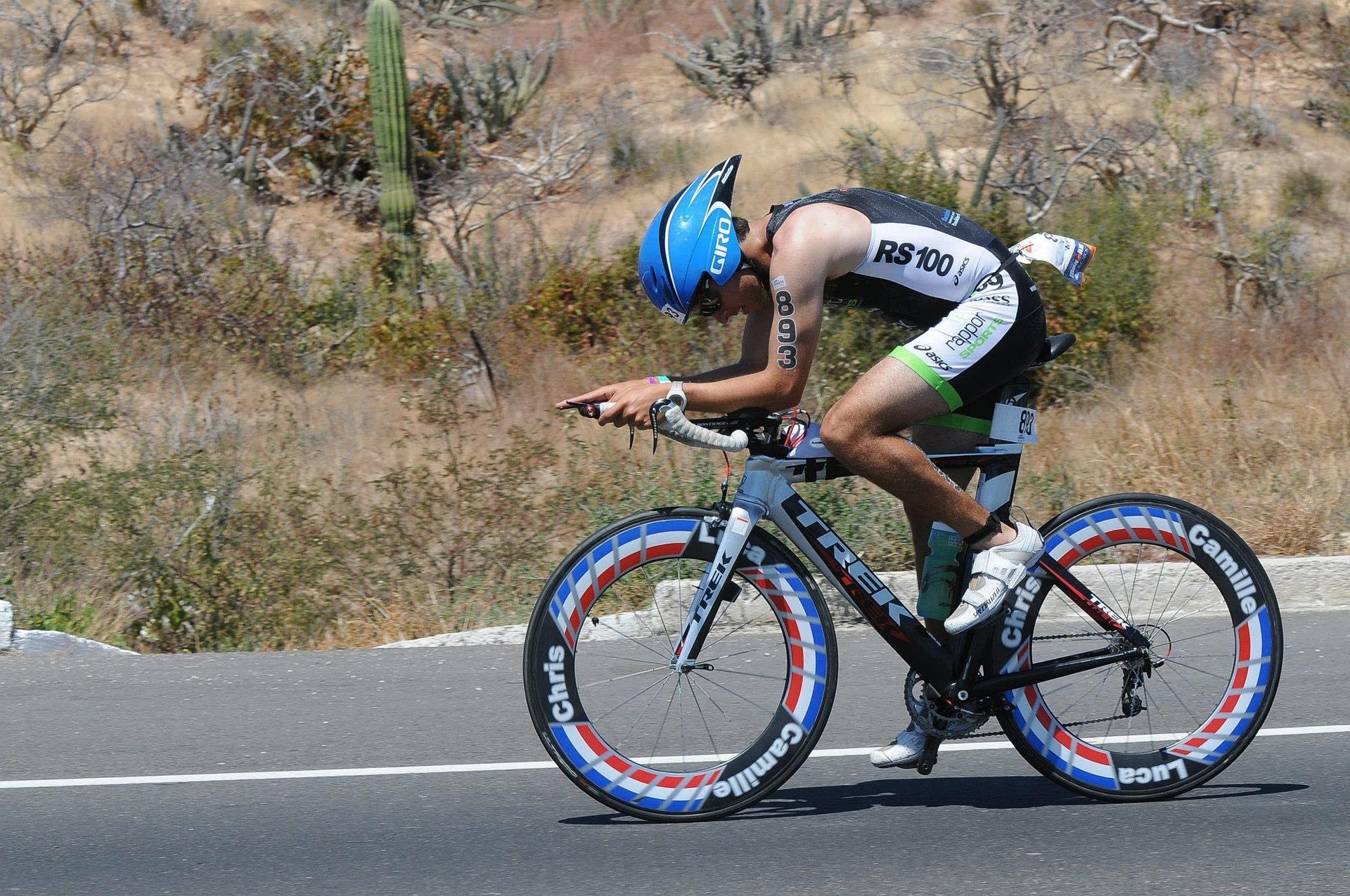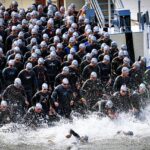Emotions play a vital, yet often underappreciated, role in triathlon performance. In fact, emotions aren’t just important in triathlon, but, even more so, in our lives in general. Emotions give our lives and our triathlon participation texture, depth, and richness. Often without realizing it, emotions are what propel you in your triathlon life. Ask yourself why you participate in triathlon? Common responses include: fun, excitement, joy, satisfaction, pride, and inspiration.
What do all of these responses have in common? They’re all emotions. I would also add that the reasons why you’re into triathlon don’t have to be so-called good emotions. Rather, you may also participate in triathlon because of the disappointment, frustration, and stress. No, those emotions aren’t pleasant, to be sure, but when you experience them, they trigger reactions, such as determination, drive, resilience, and perseverance, that can lead to even stronger positive emotions because of the challenges you overcome and the good feelings they generate. As a result, emotions are an essential piece of the Prime Sport puzzle (reminder: I define Prime Sport at “performing at a consistently high level under the most challenging conditions: which is the goal toward which triathletes should strive).

This article is the first of four in which I’ll be plumbing the depth and breadth of the role that emotions play in your triathlon life and beyond. My goal is to educate you on how emotions impact your triathlon life, both positively and negatively, and to provide you with the insights, information, and tools you need to nourish the positive emotions and minimize the negative emotions.
Emotions: Weapons or Tools
Unfortunately, you can’t just feel the positive emotions such as happiness, excitement, and joy. Think of emotions as two sides of the same coin; you can’t feel the emotions that feel good without also being willing to experience the emotions that don’t feel good. So, it’s not really a matter of whether emotions feel good or bad, but rather the effect they have on the way you think and you react. Too often, the so-called negative emotions act as weapons against people. These emotions are typically experienced as:
- Negative (e.g., fear, worry, despair),
- Unpleasant,
- Seemingly uncontrollable,
- Often overwhelming,
- Hurt their psychology (e.g., reduce motivation, confidence, and focus) and physiology (e.g., create anxiety or apathy),
- Interfere with training and competitive performances, and,
- Most basically, just plain feel bad.
But emotions are also not just phenomena that you experience in reaction to your triathlon participation. Rather, they can also be used as tools that actually promote triathlon enjoyment and success. In this case, emotions can be experience as:
- Positive,
- Pleasant,
- Controllable,
- Moderated,
- Bolster psychology and physiology,
- Drive performance, and
- Feel good.
From this perspective of emotions as tools that can foster triathlon success, you have several goals as you gain experience with your emotions as tools.
First, to experience the broad range of emotions that are common in triathlon. You can’t cherry pick your emotions, meaning you can’t just feel the good emotions such as happiness, excitement, and inspiration, and remove the so-called bad emotions such as anger, exasperation, and sadness. You have to be willing to experience and accept the entire range of emotions that you will experience in your triathlon life.

Second, you want to recognize those situations that most commonly trigger the bad emotions and then understand where they are coming from (e.g., overinvestment, fear of failure, expectations). In this process of recognition and understanding, you can learn to let go of their impact and no longer become a victim to them.
Third, rather than keeping your emotions bottled up inside of you, you can learn to express them, particularly the unpleasant ones, in healthy ways. For example, instead of giving up after a poor bike segment, you can channel your disappointment into attacking the run and finishing your race on a high note. In making this shift, you are turning those emotions from weapons that hurt you into tools that help you, that is, to invert the well-known adage, from swords into plowshares.
“Mentally tough triathletes are not emotionless: they are just skilled in subordinating emotions to the greater requirements of winning competitions.” Ellis Cashmore, author of Making Sense of Triathlon
Understanding Your Emotional Life
Of all the mental areas that impact your triathlon life, emotions are perhaps the most difficult to understand. We, of course, experience emotions all the time, yet we don’t often know what causes them or how to deal with them effectively. To increase your understanding of your emotions, there are four aspects you should know.
Emotionality involves how strongly you feel emotions. Some people don’t seem to feel emotions very strongly. We think of them as rather stoic or made of Teflon (life just slides off of them). Others feel their emotions deeply, whether incredibly intense highs or debilitating lows. Still others lie somewhere between the two extremes. Emotionality has been shown to be largely genetic; you are born somewhere along the continuum.

Expressiveness is related to how much you express your emotions outwardly. Many people confuse expressiveness with emotionality. Yet, some people can be very emotional, yet turn their emotions inward and not express them at all so others can’t tell what they are feeling. As with all of these qualities of emotions, you lie somewhere on a continuum from “Wear your heart on your sleeve” (openly and intensely expressive) to “Hold your emotions close to the vest” (hide emotions from others).
Direction involves how positive or negative your emotions usually are related to your triathlon life. Do you mostly experience pride, fun, inspiration, and joy in training and races? Or, do you mostly feel anger, frustration worry, and fear? Obviously, if you tend toward the negative side of the continuum, you’ll want to take a close look at what is causing such negative feelings and either figure out how to make a shift in the positive direction or perhaps consider whether triathlon participation, which is causing such an unpleasant emotional experience, is the right thing for you.
Control means how well you are able to consciously regulate your emotions in a way that not only feels good to you, but also helps you perform your best in your triathlon life. In other words, the degree to which you are able to control whether your emotions act as weapons against you or tools for you. An essential part of achieving Prime Sport involves learning to exert control of your emotions in a way that fosters performing your best and feeling good about your efforts.

In the next article in my series on emotions in triathlon, I’ll introduce you to the “negative emotional chain” that can result when you become frustrated with your training or competitive efforts. I’ll also show you how to break the negative emotional chain so you can continue to get the most out of your training and enjoy and maximize your race experiences.
Do you want to take the next step in training your mind to perform your best in training and on race day? Here are five options for you:
- Read my Triathlon blog.
- Read my latest mental training book: Train Your Mind for Athletic Success: Mental Preparation to Achieve Your Sports Goals.
- Listen to my Train Your Mind for Athletic Success podcast.
- Take a look at myonline mental training courses.
- Schedule a 1:1 session with me.







